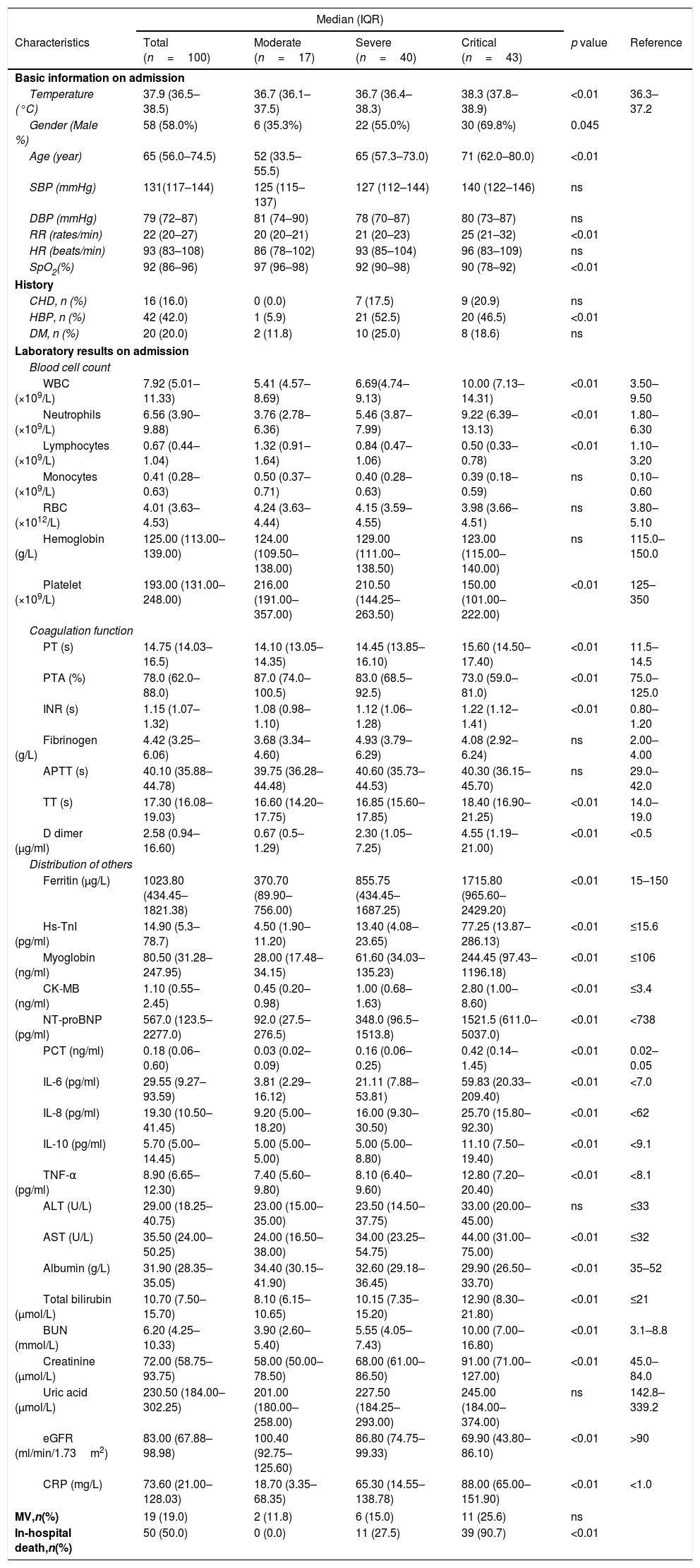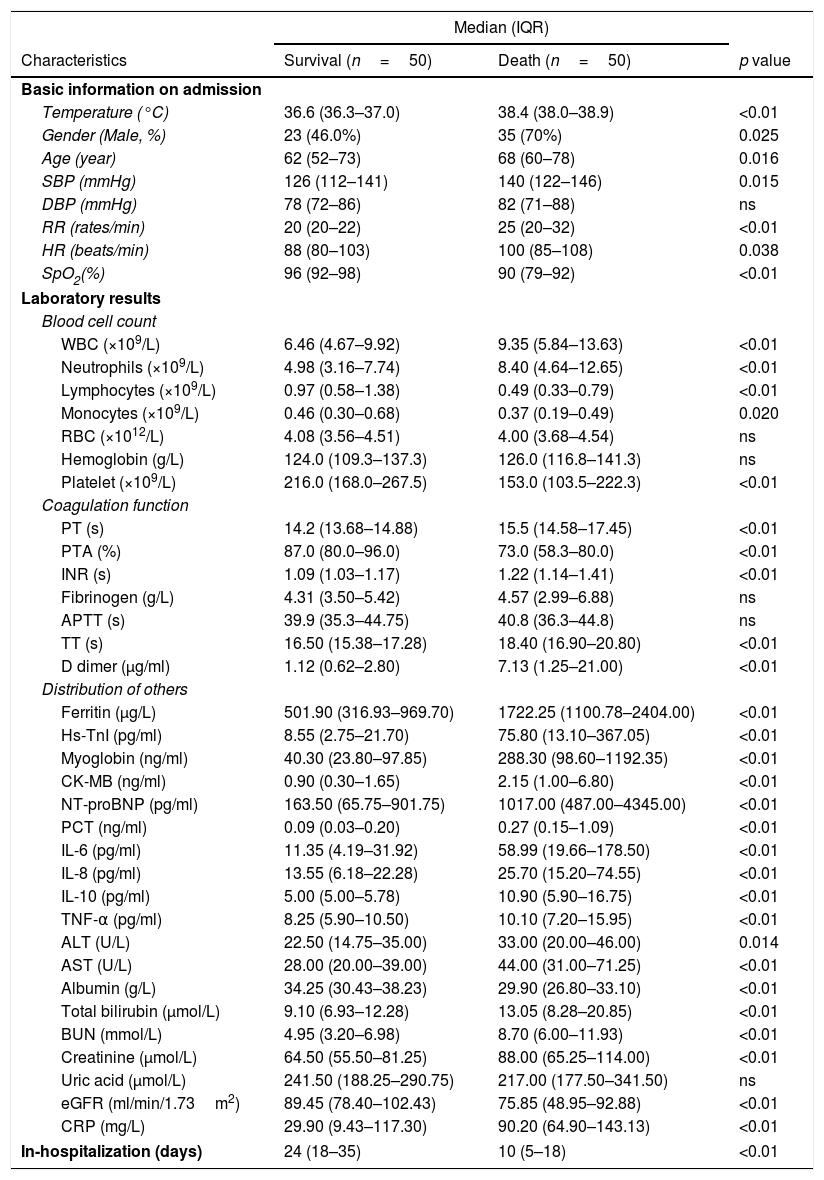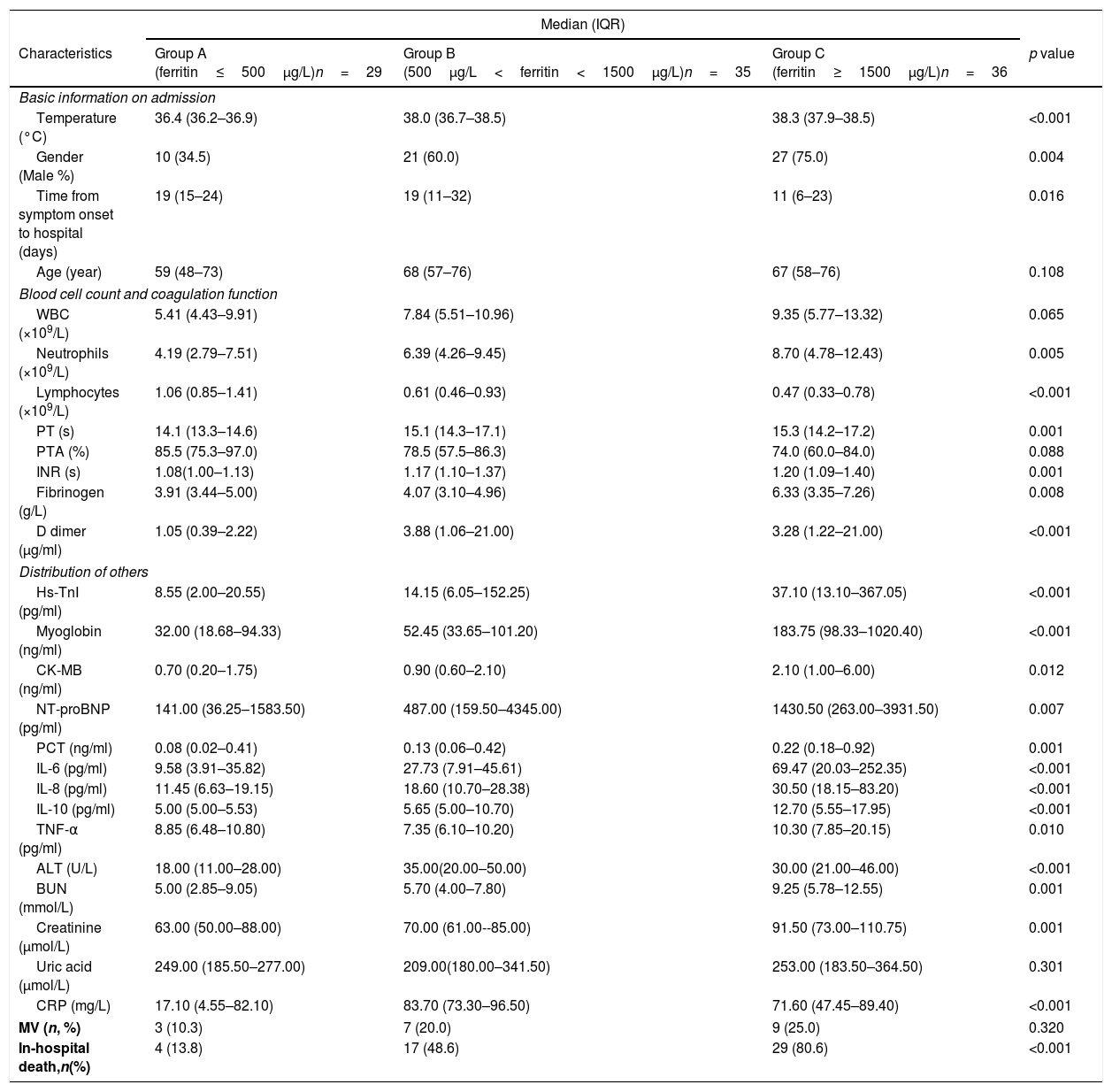The aim of this study was to evaluate hyperferritinemia could be a predicting factor of mortality in hospitalized patients with coronavirus disease-2019 (COVID-19).
MethodsA total of 100 hospitalized patients with COVID-19 in intensive care unit (ICU) were enrolled and classified into moderate (n=17), severe (n=40) and critical groups (n=43). Clinical information and laboratory results were collected and the concentrations of ferritin were compared among different groups. The association between ferritin and mortality was evaluated by logistic regression analysis. Moreover, the efficiency of the predicting value was assessed using receiver operating characteristic (ROC) curve.
ResultsThe amount of ferritin was significantly higher in critical group compared with moderate and severe groups. The median of ferritin concentration was about three times higher in death group than survival group (1722.25μg/L vs. 501.90μg/L, p<0.01). The concentration of ferritin was positively correlated with other inflammatory cytokines, such as interleukin (IL)-8, IL-10, C-reactive protein (CRP) and tumor necrosis factor (TNF)-α. Logistic regression analysis demonstrated that ferritin was an independent predictor of in-hospital mortality. Especially, high-ferritin group was associated with higher incidence of mortality, with adjusted odds ratio of 104.97 [95% confidence interval (CI) 2.63–4185.89; p=0.013]. Moreover, ferritin had an advantage of discriminative capacity with the area under ROC (AUC) of 0.822 (95% CI 0.737–0.907) higher than procalcitonin and CRP.
ConclusionThe ferritin measured at admission may serve as an independent factor for predicting in-hospital mortality in patients with COVID-19 in ICU.
El objetivo de este estudio fue evaluar si la hiperferritinemia podría ser un factor predictivo de la mortalidad en pacientes hospitalizados con enfermedad por coronavirus de 2019 (COVID-19).
MétodosSe incluyó un total de 100 pacientes hospitalizados con COVID-19 en la unidad de cuidados intensivos (UCI), clasificándose como grupos moderado (n=17), grave (n=40) y crítico (n=43). Se recopiló la información clínica y de laboratorio, comparándose los niveles de ferritina entre los diferentes grupos. Se evaluó la asociación entre ferritina y mortalidad mediante un análisis de regresión logística. Además, se evaluó la eficacia del valor predictivo utilizando la curva ROC (receiver operating characteristic).
ResultadosLa cantidad de ferritina fue significativamente superior en el grupo de pacientes críticos en comparación con el grupo de pacientes graves. La media de concentración de ferritina fue cerca de 3 veces superior en el grupo de muerte que en el grupo de supervivientes (1.722,25μg/L vs. 501,90μg/L, p<0,01). La concentración de ferritina guardó una correlación positiva con otras citoquinas inflamatorias tales como interleucina (IL)-8, IL-10, proteína C reactiva (PRC) y factor de necrosis tumoral (TNF)-α. El análisis de regresión logística demostró que la ferritina era un factor predictivo independiente de la mortalidad intrahospitalaria. En especial, el grupo de ferritina alta estuvo asociado a una mayor incidencia de la mortalidad, con un valor de odds ratio ajustado de 104,97 [intervalo de confianza (IC) del 95% 2,63-4.185,89; p=0,013]. Además, el valor de ferritina tuvo una ventaja de capacidad discriminativa en el área bajo la curva ROC (AUC) de 0,822 (IC 95% 0,737-0,907] superior al de procalcitonina y PRC.
ConclusiónEl valor de ferritina medido durante el ingreso puede servir de factor independiente para prevenir la mortalidad intrahospitalaria en los pacientes de COVID-19 en la UCI.












